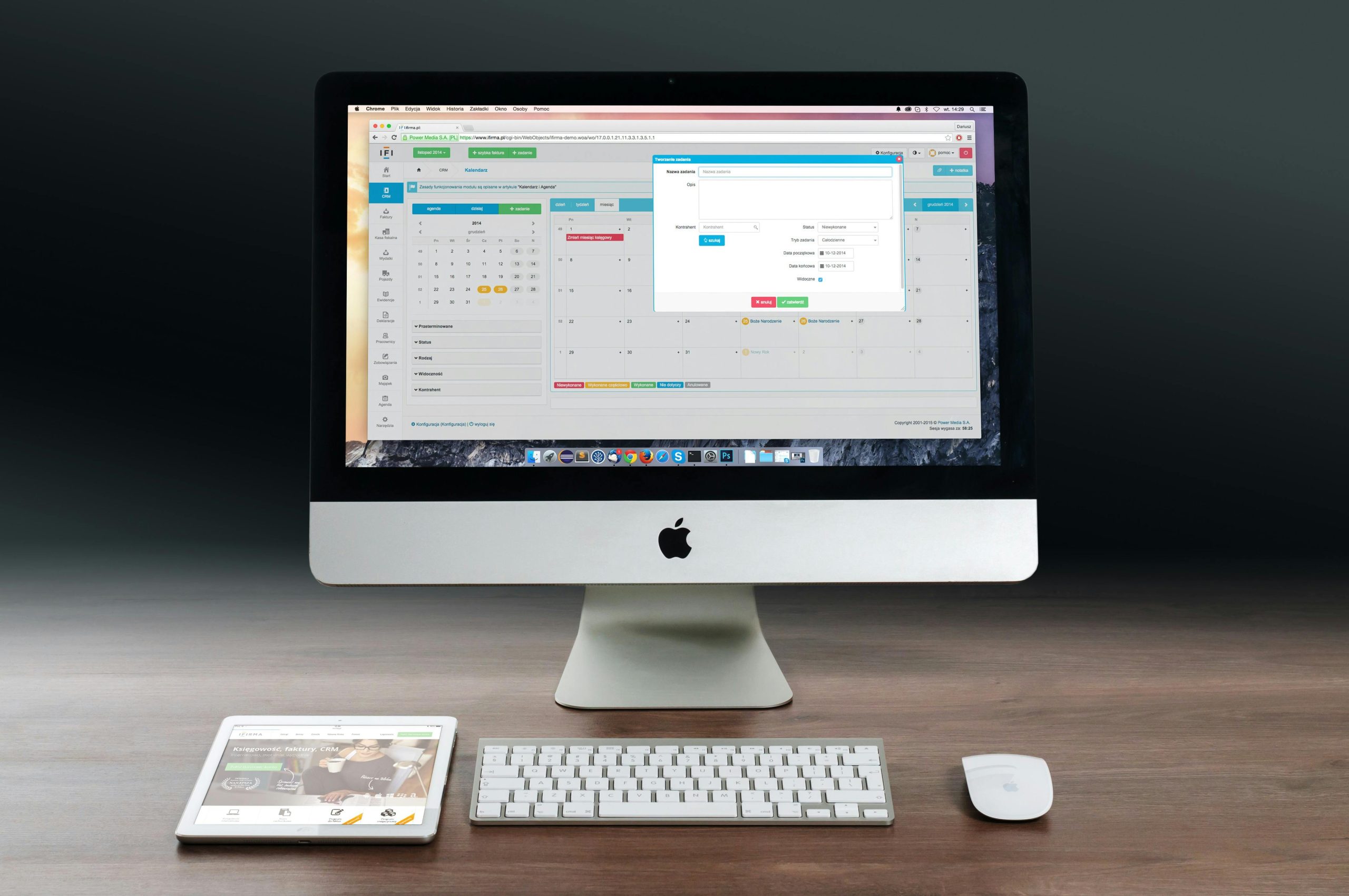
The computer is the most essential device in our modern life, without it, we can’t think of our existence. So, we need to know the history of the computer. Let’s go to search the history of computers.
Table of Contents
Abacus, The Basic Handmade Calculator
Very first level of computer history we found a handmade tool named Abacus.

The simple counting device was one of the first and most popular devices in ancient Greece to perform basic calculations.
Mechanical Calculator
In the history of the Computer, in the 17th century, Blaise Pascal invented the mechanical calculator, which could perform more complex calculations.
Analytical Engine
In the 19th century, English mathematician Charles Babbage, the father of computers, during the 1833s designed the Analytical Engine, considered the first general-purpose computer. That is responsible for changing the history of the computer.
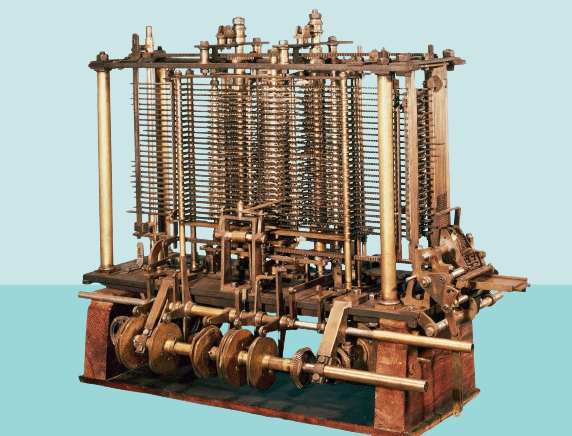
Hollerith Tabulating Machine
In the early 20th century, the invention of the Hollerith Tabulating Machine which was used for US census data processing in 1890, and Konrad Zuse’s Z3, often considered the world’s first electromechanical programmable computer.
ENIAC, The First Digital Computer
In 1945, ENIAC- “Electronic Numerical Integrator and Computer” was designed by American physicist John Mauchly, and American engineer J. Presper Eckert. ENIAC was the first programmable, electronic, general-purpose digital computer, which established the digital computing era.
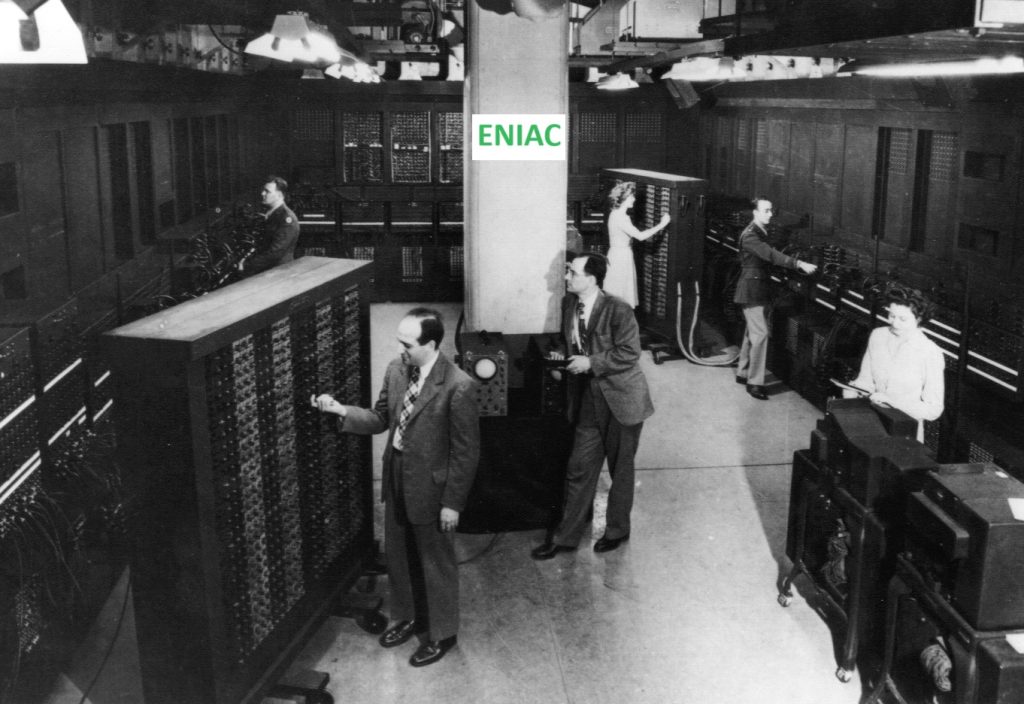
After ENIAC they invented another digital computer named “UNIVAC I” or “UNIVAC”(Universal Automatic Computer) in 1951, as well as EDVAC (Electronic Discrete Variable Automatic Computer), BINAC was also invented.
The Invention of the Transistor
The invention of the transistor was on December 23, 1947, by Bell Laboratories in Murray Hill, New Jersey, USA. That is a revolutionary change in the history of the computer. Three scientists credited with the invention of the transistor were William Shockley, John Bardeen, and Walter Brattain. Transistors replaced bulky vacuum tubes, making computers smaller and faster.
Invention of IC
In 1959, the silicon integrated circuit (IC) chip was developed by Robert Noyce at Fairchild Semiconductor. ICs allowed multiple electronic components to be integrated into a single semiconductor chip, increasing computing power and reliability while reducing cost.
Read More: What is a computer? Definition, Inventor, and best uses of it in 2024
Invention of the Internet
In the late 1960s ARPANET (Advanced Research Projects Agency Network) was developed by the United States Department of Defense (ARPA-Advanced Research Projects Agency). ARPANET was the first computer network that used packet switching to connect geographically scattered computers. It was the foundation of the internet and also contributed to a big change in the history of the computer. The first node of ARPANET was established at the University of California, Los Angeles in 1969.
Tim Berners-Lee‘s invention of the WWW- World Wide Web in 1989 revolutionized how information is accessed and shared online.
Personal Computers (1970s to 1980s)
The 1970s saw the emergence of the personal computer (PC) revolution, driven by pioneers such as Steve Jobs, Steve Wozniak, and Bill Gates. Companies like Apple and IBM introduced affordable microcomputers equipped with user-friendly interfaces and software.
The release of the Apple II in 1977 and the IBM PC in 1981 marked significant milestones in the popularization of personal computing. These computers brought computing power to individuals and small businesses, fueling a surge in innovation and entrepreneurship in the tech industry.
The invention of the First Laptop: The Epson HX-20
The Epson HX-20 or HC-20 was the first “true” laptop computer in the world. It was invented in July 1980 by Seiko Epson, receiving a patent for the invention. It was announced in 1981 as the HC-20 in Japan and HX-20 in North America. It had a mass-market release in July 1982. It was hailed by Business Week magazine as the “fourth revolution in personal computing”. Computers are smaller with the invention of the laptop, which is a big volume change in the history of the computer.
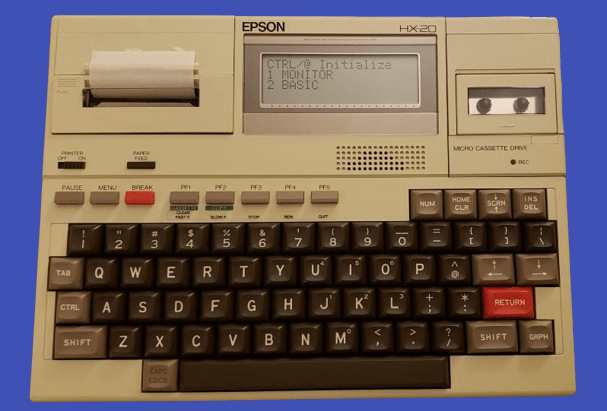
Specifications of Epson HX-20:
- CPU: Dual Hitach 6301 CPU at 614 kHz
- Memory: 16 KB RAM (Expandable to 32 KB)
- Display: Dot-matrix LCD with 4 lines at 20 characters
- Graphics: 120×32 pixel
- Keyboard: 68-key keyboard
- Battery: Rechargeable Ni_Cad
- Printer: A 24-column dot matrix printer
- Casette: A Micro casette Drive
- Adapter: an Adapter for CRT output
- Weight: 3.5 lbs
Read More: The Classification of a Computer in the 21st Century
Mobile Computing and Smartphones (21st century)
The 21st century brought advancements in mobile computing, with the introduction of smartphones and tablets that combined computing power with portability and connectivity in the history of the computer. Apple’s iPhone, released in 2007, and Google’s Android operating system revolutionized the mobile industry, spawning a new era of computing on the go.
The App Store and Google Play Store created thriving ecosystems of mobile applications, offering users access to a vast array of software and services tailored to their needs and preferences.
Cloud Computing and Artificial Intelligence-AI (present and future)
Cloud computing, which allows users to access computing resources and storage over the internet, has become increasingly prevalent, enabling flexible and scalable computing solutions for businesses and consumers alike.
Advances in artificial intelligence (AI) and machine learning are driving new opportunities and challenges in computing, with applications ranging from voice assistants and autonomous vehicles to predictive analytics and medical diagnosis. AI is the most powerful invention in the history of the computer.
Read More:
- A Complete Guide to MAC Addresses: Definition, Function, and Uses
- Comprehensive Guide to the Types of Computer Networks: LAN, WAN, PAN, and More
- Understanding Network Cabling: A Beginner’s Guide to the Basics of Wiring Standards
- What is the Internet? Good and Bad uses of It in the 21st Century
- What is a computer? Definition, Inventor, and best uses of it in 2024
- The Classification of a Computer in the 21st Century
- Making a Bootable Pendrive Without Any Software for Installing an Operating System
- Making a Partition in 6 Easy Steps on a Hard Disk
- Hiding a Partition of a Hard Disk for Data Security
- Ultimate Guide to Boot Configuration Data (BCD Editor) Store Editor: How to Manage and Troubleshoot Boot Settings in Windows
- Binary Code Basics: How Computers Use 0s and 1s to Communicate
- How to Fix Keyboard Hardware Issues: Repair Non-Working Keys Easily
FAQs
Q1: Who invented the first computer?
Ans: Charles Babbage designed the first mechanical computer in the 1830s, while ENIAC, the first electronic computer, was built in the 1940s.
Q2: When was the first computer created?
Ans: Babbage’s design dates to the 1830s, but the first functional electronic computers appeared in the 1940s.
Q3: How has computer technology evolved?
Ans: Computers evolved from mechanical devices to electronic machines, transitioning to personal and portable devices with exponential power increases.
Q4: What was the purpose of the first computers?
Ans: Early computers were used for complex calculations in scientific research and military applications.
Q5: Who are key figures in computer history?
Ans: Key figures include Charles Babbage, Alan Turing, John von Neumann, and Steve Jobs.
Q6: How did computers transition to personal use?
Ans: The invention of microprocessors in the 1970s made computers more affordable and accessible for personal and business use.
Q7: What was the impact of the Internet on computer history?
Ans: The Internet transformed computers into essential communication, information, and entertainment tools globally.
Q8: When did computers become mainstream?
Ans: Computers became mainstream in the 1980s, with the advent of personal computers like the IBM PC and Apple Macintosh, which made computing accessible to the general public.
Q9: What is the significance of the microprocessor in computer history?
Ans: The microprocessor, developed in the early 1970s, revolutionized computing by consolidating the CPU on a single chip, reducing costs, and enabling smaller, more powerful personal computers.
Q10: How did computers evolve into mobile devices?
Ans: Advancements in microprocessors, battery technology, and wireless connectivity enabled the evolution of computers into mobile devices, such as laptops, tablets, and smartphones, from the late 1990s onward.
Q11: What role did Apple and Microsoft play in computer history?
Ans: Apple and Microsoft played crucial roles in popularizing personal computing; Apple with the user-friendly Macintosh and Microsoft with its widespread Windows OS, shaping the PC market.
Q12: How has the history of the computer influenced modern technology?
Ans: The development of computers paved the way for the digital age, influencing the creation of the Internet, smartphones, AI, and other technologies that define modern life.
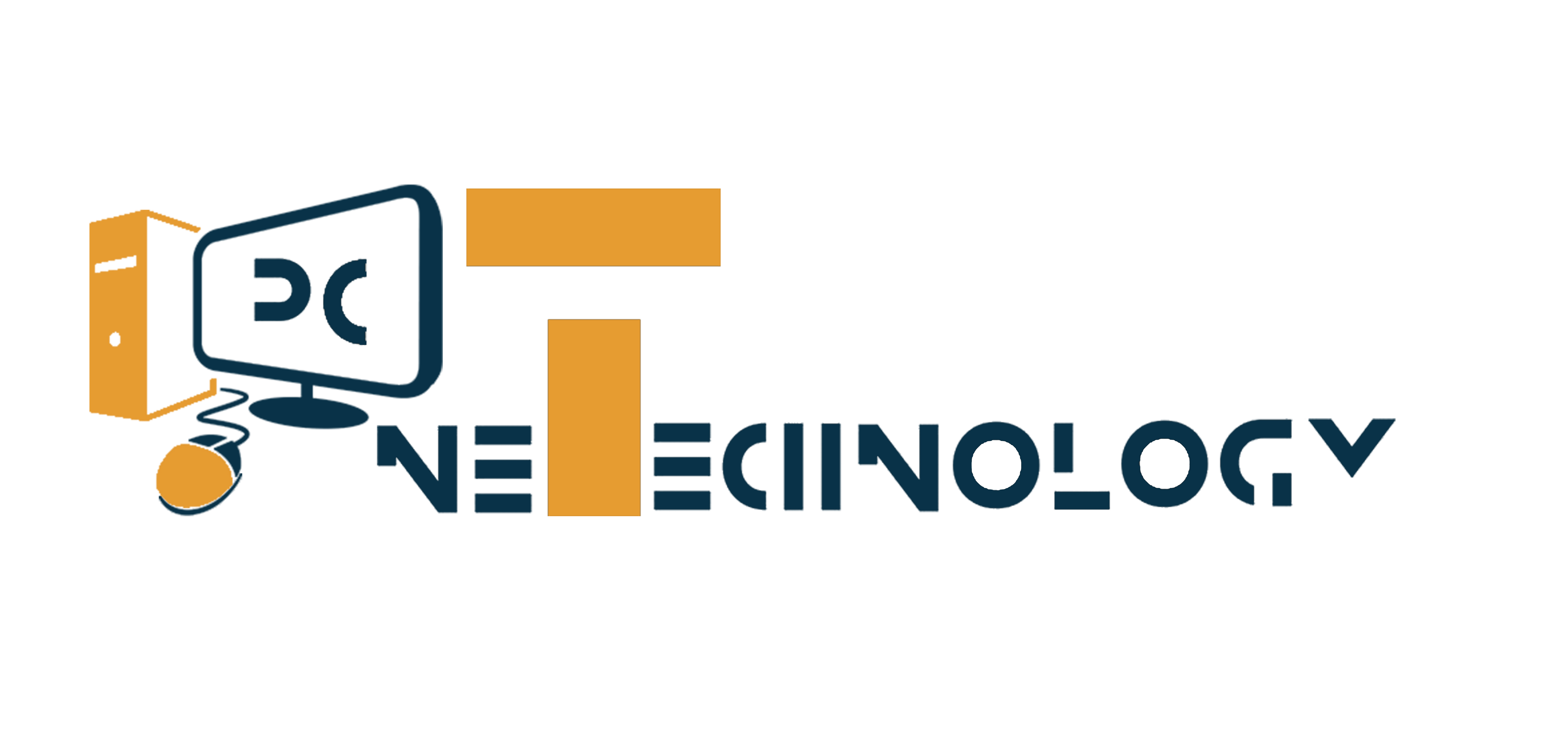



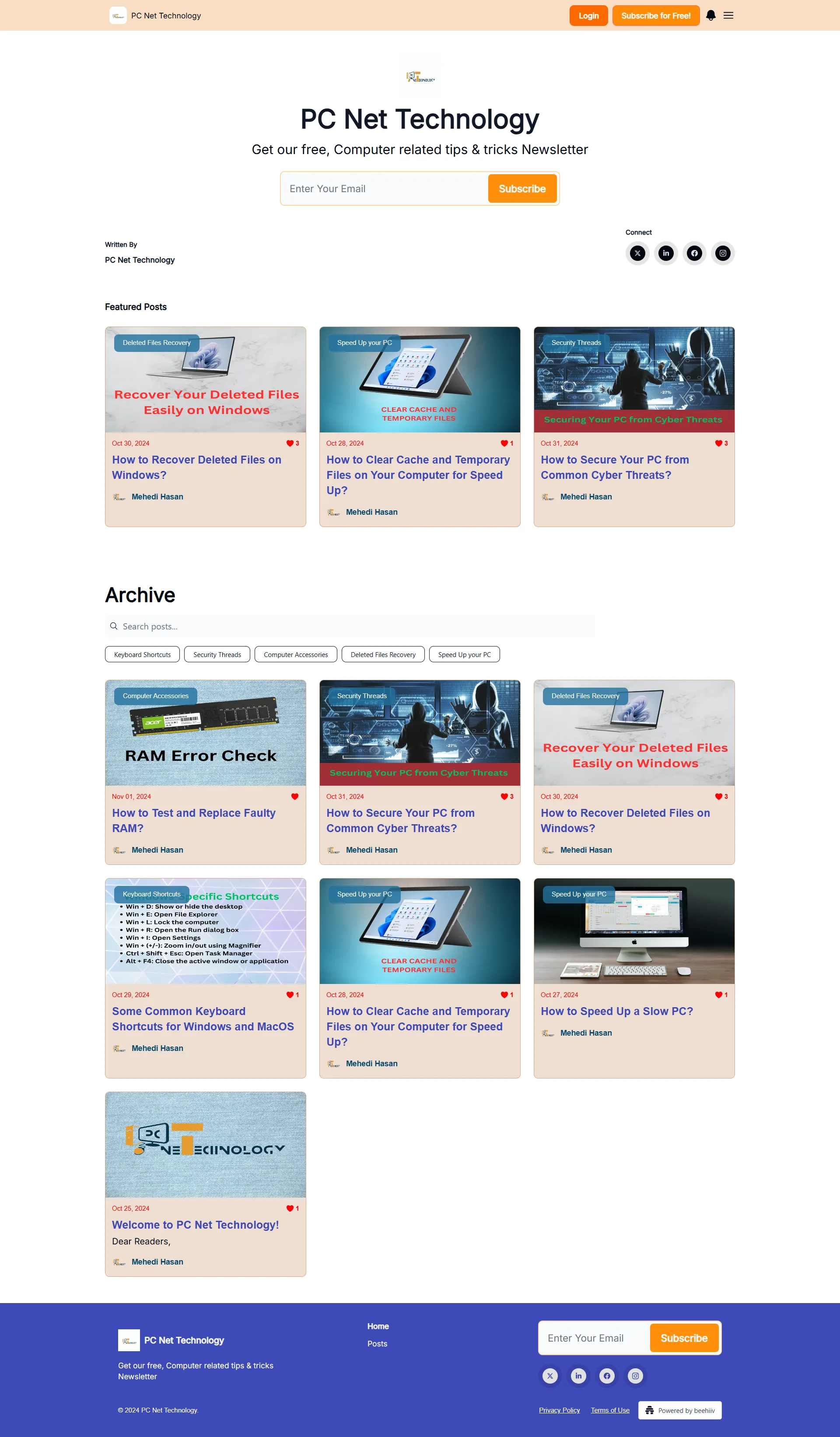
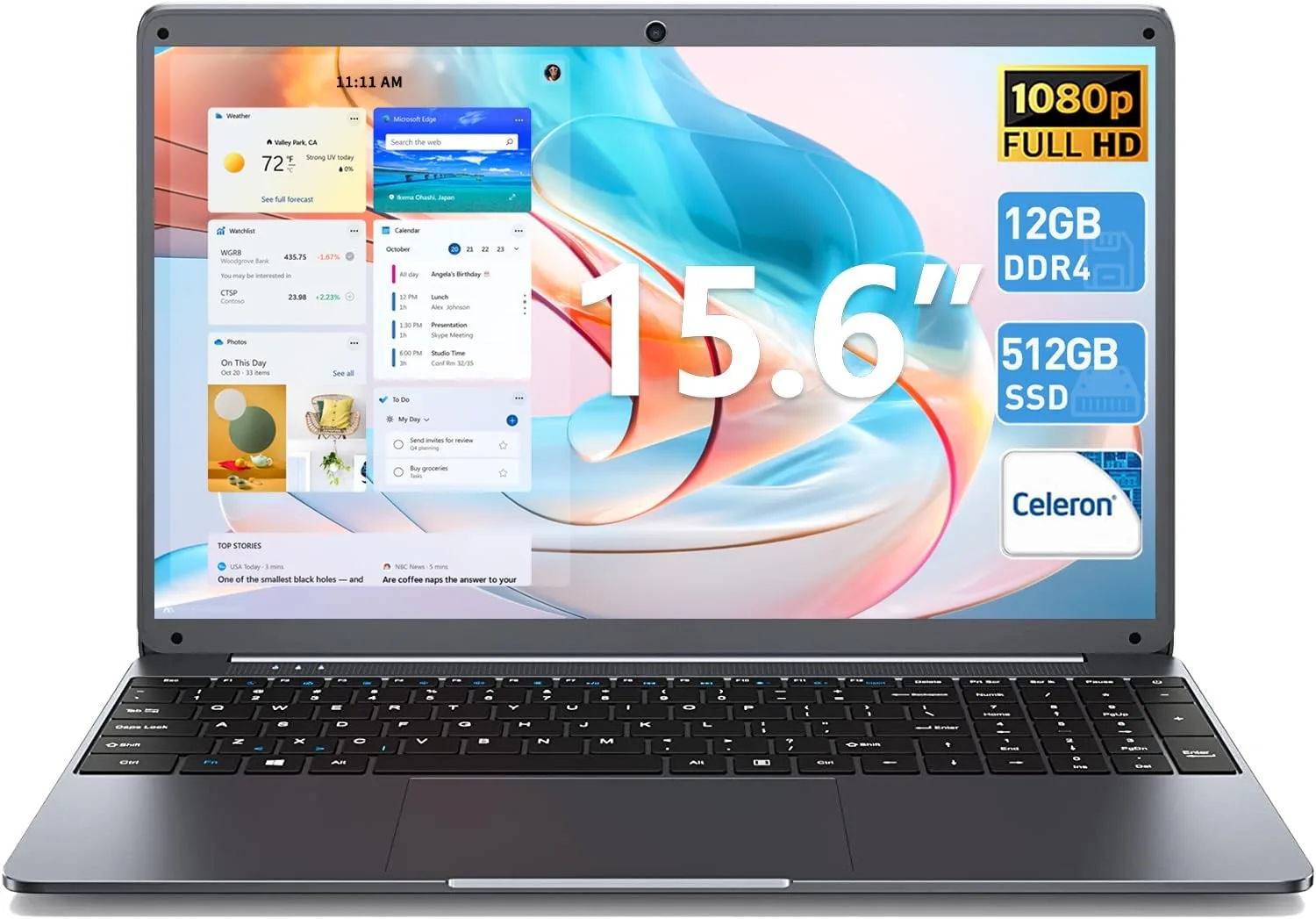
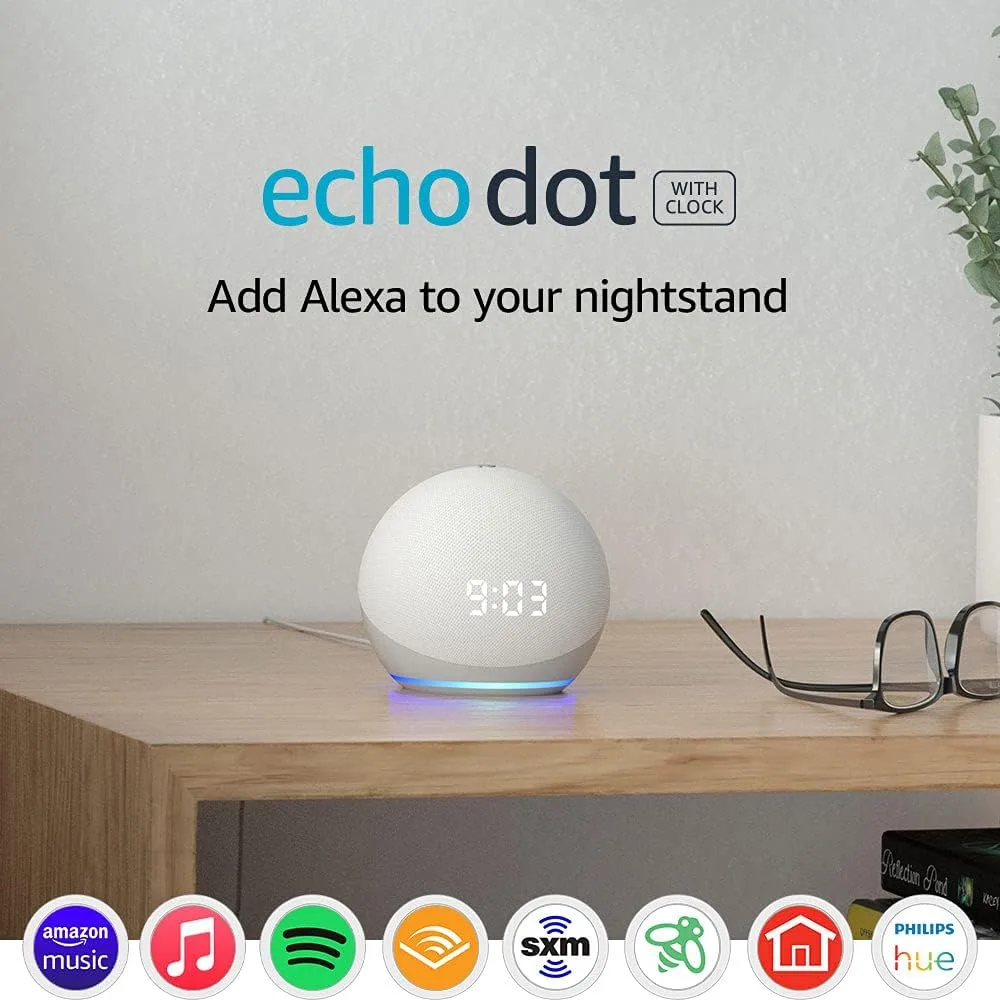
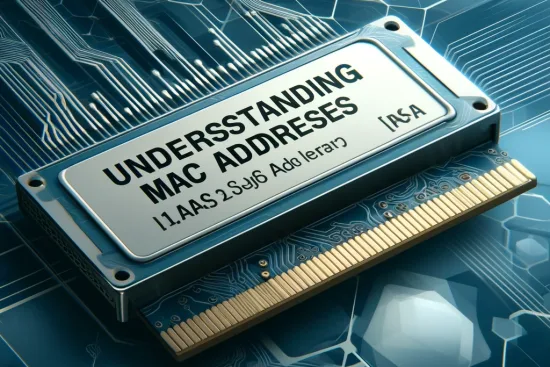
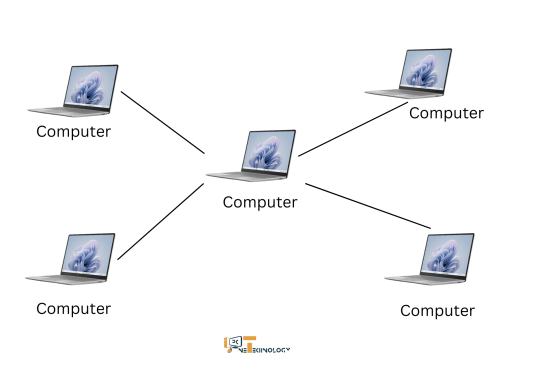
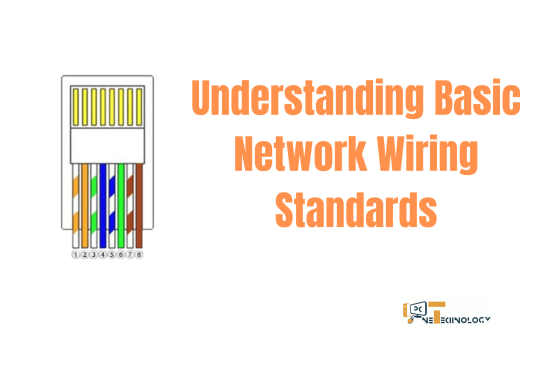
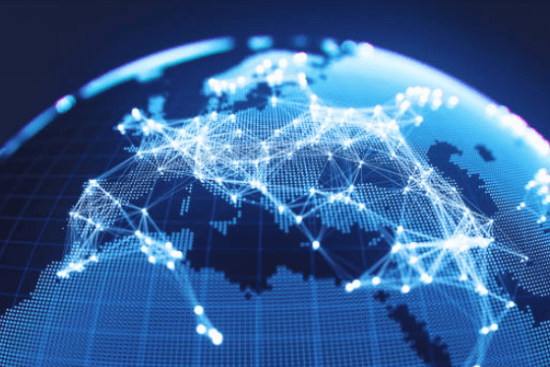

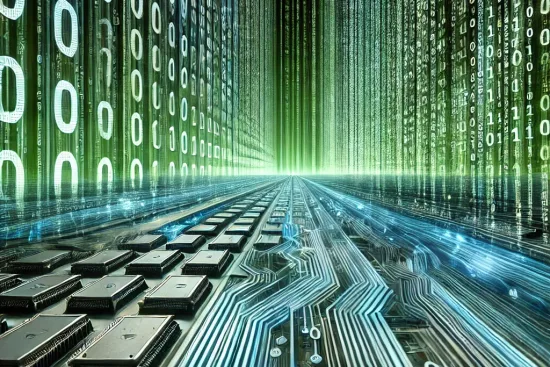



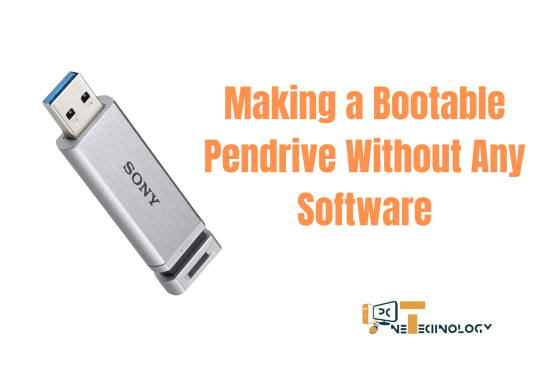

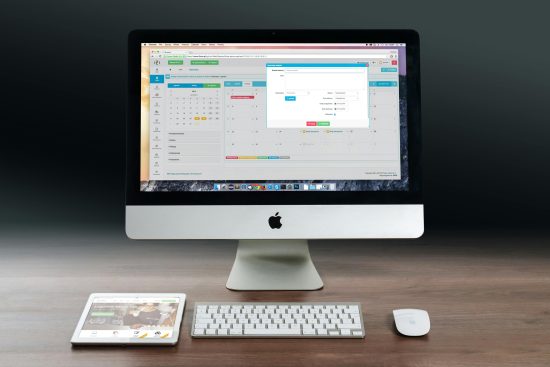

Leave a Reply